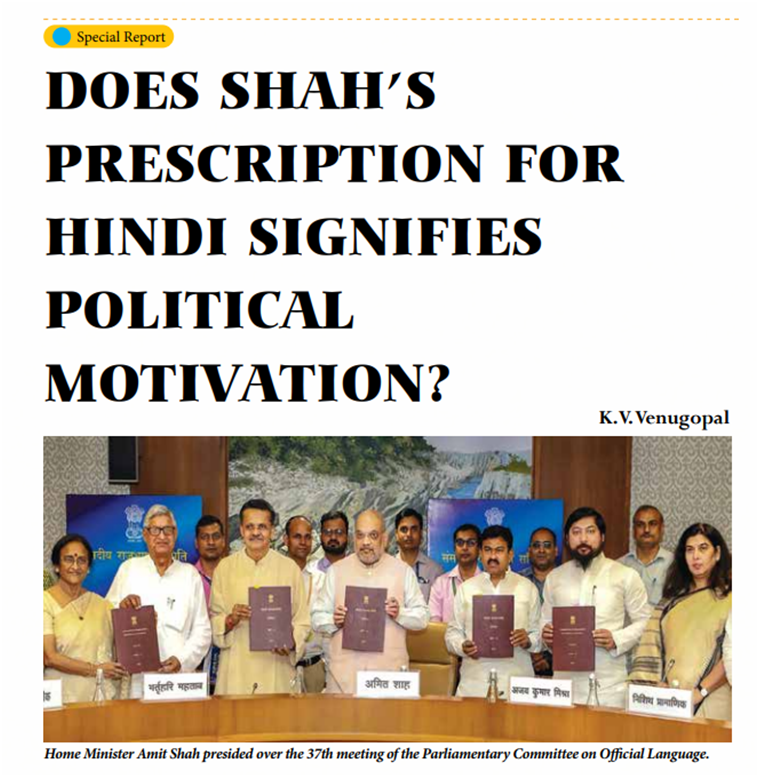
Hardly had the Union Home Minister Amit Shah finished completing his sentence, “Hindi should be the alternative for English”, the enraged opposition parties bombarded him for airing such an uncalled-for, if not, unworthy suggestion.Will not the country’s unity be impeded and the federal structure of the polity disturbed, if Hindi is allowed to supersede English, ask the opposition, especially, the Dravidian parties in South India? The attempted move might upset the applecart of the North-East region, too, where Hindi is an alien language for a large number of people. The people of Megalaya, Arunachal Pradesh, Mizoram and Manipur, let alone Assam and Tripura, would be rattled, if Hindi is forced upon them at the cost of their mother-tongue.
The million dollar question is, has the ever-agile Amit Shah really meant it when he advocated the people to replace Hindi with English, or was it a strategy to divert the people’s attention from spiralling price rise, more so, on the recent petroleum products, to keep the issue alive till the conclusion of the presidential election, as well as the assembly elections to Gujarat and Himachal Pradesh, scheduled for October-November, this year, if not, till the array of assembly elections next year and subsequent Lok Sabha elections that takes place in 2024, to appease the people of Hindi heartland?
It may be recalled that after Independence, right from the elderly statesman C. Rajagopalachari to India’s first Prime Minister Pandit Jawaharlal Nehru, among other leaders of prominance, have promised not to impose Hindi on the non-Hindi speaking people, till they desire to learn the language. Dr Ambedkar made it clear that a language should not be thrust on the people, as India’s constitutional propriety does not envisage a special privilege for Hindi. However, the then Socialist leader, Ram Manohar Lohia was firm enough to opine that the people who do not speak Hindi in India are not worth considered as Indians. His disciple and the former care-taker Prime Minister Charan Singh followed his footsteps and reiterated that Hindi should be the Rashtra Bhasha (National language) in India.
In Tamil Nadu, the DMK has decided to keep alive the controversial issue, as fierce opposition to Hindi had fetched them electoral dividends in the past. For instance, the party captured power for the first time in the state in 1967 by resorting to a massive anti-Hindi agitation that unnerved the then Congress government led by Indira Gandhi, at the Centre. The Congress could not recover from that route even after 55 years in Tamil Nadu. However, it is imperative on the part of people in South India, and, more so, in Tamil Nadu to realise that Hindi is looked at as a link/connectivity language in various parts of the country. The former Prime Minister Morarji Desai said, while addressing a meeting before the Lok Sabha election at Chennai in 1977, that he would advise the people of Tamil Nadu to learn Hindi, considering its importance and not urging them to pick-up his mother-tongue Gujarati, as only two per cent of people in the State are in a position to converse in English.
The former Prime Minister, A.B. Vajpayee was in the frontas an External Affairs Minister in the Janata Party government when his ministry spent Rs two crore for him to speak Hindi in the United Nations.
To read the further articles please get your copy of Eastern Panorama May issue @http://www.magzter.com/IN/Hill-Publications/Eastern-Panorama/News/ or mail to contact @easternpanorama.in


